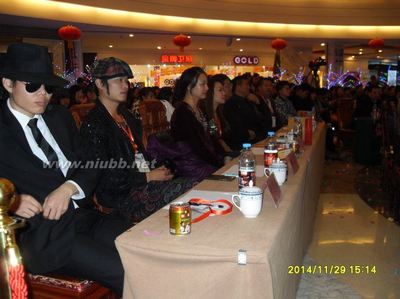OfMarriageandSingleLife两篇译文比较作者:天际
郁达夫《故都的秋》三种英译文对比赏析(比较研究)—毕业论文选题二作者:一鸣
郁达夫《故都的秋》三种英译文对比鉴赏
一鸣辑录
原文来源:
《郁达夫文集》,当代世界出版社,2010年。
译文来源:
第一种译文:张培基译,选自《英译中国现代散文选》第一辑第204页,上海外语教育出版社, 1999。
第二种译文:王椒升译,选自《英语世界》精选第二册第286页,商务印书馆,2008。
第三种译文:张梦井译,选自《中国名家散文精译》第324页,青岛出版社,1999年。
原文:
故都的秋
郁达夫
秋天,无论在什么地方的秋天,总是好的;可是啊,北国的秋,却特别地来得清,来得静,来得悲凉。我的不远千里,要从杭州赶上青岛,更要从青岛赶上北平来的理由,也不过想饱尝一尝这“秋”,这故都的秋味。
江南,秋当然也是有的;但草木雕得慢,空气来得润,天的颜色显得淡,并且又时常多雨而少风;一个人夹在苏州上海杭州,或厦门香港广州的市民中间,浑浑沌沌地过去,只能感到一点点清凉,秋的味,秋的色,秋的意境与姿态,总看不饱,尝不透,赏玩不到十足。秋并不是名花,也并不是美酒,那一种半开,半醉的状态,在领略秋的过程上,是不合适的。
不逢北国之秋,已将近十余年了。在南方每年到了秋天,总要想起陶然亭的芦花,钓鱼台的柳影,西山的虫唱,玉泉的夜月,潭柘寺的钟声。在北平即使不出门去罢,就是在皇城人海之中,租人家一椽破屋来住着,早晨起来,泡一碗浓茶、向院子一坐,你也能看得到很高很高的碧绿的天色,听得到青天下驯鸽的飞声。从槐树叶底,朝东细数着一丝一丝漏下来的日光,或在破壁腰中,静对着象喇叭似的牵牛花(朝荣)的蓝朵,自然而然地也能够感觉到十分的秋意。说到了牵牛花,我以为以蓝色或白色者为佳,紫黑色次之,淡红色最下。最好,还要在牵牛花底,教长着几根疏疏落落的尖细且长的秋草,使作陪衬。
北国的槐树,也是一种能使人联想起秋来的点缀。象花而又不是花的那一种落蕊,早晨起来,会铺得满地。脚踏上去,声音也没有,气味也没有,只能感出一点点极微细极柔软的触觉。扫街的在树影下一阵扫后,灰土上留下来的一条条扫帚的丝纹,看起来既觉得细腻,又觉得清闲,潜意识下并且还觉得有点儿落寞,古人所说的梧桐一叶而天下知秋的遥想,大约也就在这些深沈的地方。
秋蝉的衰弱的残声,更是北国的特产;因为北平处处全长着树,屋子又低,所以无论在什么地方,都听得见它们的啼唱。在南方是非要上郊外或山上去才听得到的。这秋蝉的嘶叫,在北平可和蟋蟀耗子一样,简直象是家家户户都养在家里的家虫。
还有秋雨哩,北方的秋雨,也似乎比南方的下得奇,下得有味,下得更象样。
在灰沈沈的天底下,忽而来一阵凉风,便息列索落地下起雨来了。一层雨过,云渐渐地卷向了西去,天又青了,太阳又露出脸来了;著着很厚的青布单衣或夹袄曲都市闲人,咬着烟管,在雨后的斜桥影里,上桥头树底下去一立,遇见熟人,便会用了缓慢悠闲的声调,微叹着互答着的说:
“唉,天可真凉了——”(这了字念得很高,拖得很长。)
“可不是么?一层秋雨一层凉了!”
北方人念阵字,总老象是层字,平平仄仄起来,这念错的歧韵,倒来得正好。
北方的果树,到秋来,也是一种奇景。第一是枣子树;屋角,墙头,茅房边上,灶房门口,它都会一株株地长大起来。象橄榄又象鸽蛋似的这枣子颗儿,在小椭圆形的细叶中间,显出淡绿微黄的颜色的时候,正是秋的全盛时期;等枣树叶落,枣子红完,西北风就要起来了,北方便是尘沙灰土的世界,只有这枣子、柿子、葡萄,成熟到八九分的七八月之交,是北国的清秋的佳日,是一年之中最好也没有的GoldenDays。
有些批评家说,中国的文人学士,尤其是诗人,都带着很浓厚的颓废色彩,所以中国的诗文里,颂赞秋的文字特别的多。但外国的诗人,又何尝不然?我虽则外国诗文念得不多,也不想开出账来,做一篇秋的诗歌散文钞,但你若去一翻英德法意等诗人的集子,或各国的诗文的Anthology来,总能够看到许多关于秋的歌颂与悲啼。各著名的大诗人的长篇田园诗或四季诗里,也总以关于秋的部分。写得最出色而最有味。足见有感觉的动物,有情趣的人类,对于秋,总是一样的能特别引起深沈,幽远,严厉,萧索的感触来的。不单是诗人,就是被关闭在牢狱里的囚犯,到了秋天,我想也一定会感到一种不能自己的深情;秋之于人,何尝有国别,更何尝有人种阶级的区别呢?不过在中国,文字里有一个“秋士”的成语,读本里又有着很普遍的欧阳子的《秋声》与苏东坡的《赤壁赋》等,就觉得中国的文人,与秋的关系特别深了。可是这秋的深味,尤其是中国的秋的深味,非要在北方,才感受得到底。
南国之秋,当然是也有它的特异的地方的,比如廿四桥的明月,钱塘江的秋潮,普陀山的凉雾,荔枝湾的残荷等等,可是色彩不浓,回味不永。比起北国的秋来,正象是黄酒之与白干,稀饭之与馍馍,鲈鱼之与大蟹,黄犬之与骆驼。
秋天,这北国的秋天,若留得住的话,我愿把寿命的三分之二折去,换得一个三分之一的零头。
一九三四年八月,在北平
第一种译文:张培基译
Autumn inPeiping
Autumn, wherever it is, always has something to recommenditself. In North China, however, it is particularly limpid, sereneand melancholy. To enjoy its atmosphere to the full in the onetimecapital, I have, therefore, made light of travelling a longdistance from Hanghou to Qingdao, and thence to Peiping.
There is of course autumn in the South too, but over thereplants wither slowly, the air is moist, the sky pallid, and it ismore often rainy than windy. While muddling along all by myselfamong the urban dwellers of Suzhou, Shanghai, Xianmen, Hong Kong orGuangzhou, I feel nothing but a little chill in the air, withoutever relishing to my heart’s content the flavour, colour, mood andstyle of the season. Unlike famous flowers which are mostattractive when half opening, good wine which is most tempting whenone is half drunk, autumn, however, is best appreciated in itsentirety.
It is more than a decade since I last saw autumn in North.When I am in the South, the arrival of each autumn will put me inmind of Peiping’s Tao Ran Ting with its reed catkins, Diao Yu Taiwith its shady willow trees, Western Hills with their chirpinginsects, Yu Quan Shan Mountain on a moonlight evening and Tan ZheSi with its reverberating bell. Suppose you put up in a humblerented house inside the bustling imperial city, you can, on gettingup at dawn, sit in your courtyard sipping a cup of strong tea,leisurely watch the high azure skies and listen to pigeons circlingoverhead. Saunter eastward under locust trees to closely observestreaks of sunlight filtering through their foliage, or quietlywatch the trumpet-shaped blue flowers of morning glories climbinghalf way up a dilapidated wall, and an intense feeling of autumnwill of itself well up inside you. As to morning glories, I liketheir blue or white flowers best, dark purple ones second best, andpink ones third best. It will be most desirable to have them setoff by some tall thin grass planted underneath here and there.Locust trees in the North, as a decorative embellishment of nature,also associate us with autumn. On getting up early in the morning,you will find the ground strewn all over with flower-like pistilsfallen from locust trees. Quiet and smellless, they feel tiny andsoft underfoot. After a street cleaner has done the sweeping underthe shade of the trees, you will discover countless lines left byhis broom in the dust, which look so fine and quiet that somehow afeeling of forlornness will begin to creep up on you. The samedepth of implication is found in the ancient saying that a singlefallen leaf from the wutong tree is more than enough to inform theworld of autumn’s presence.
The sporadic feeble chirping of cicadas is especiallycharacteristic of autumn in the North. Due to the abundance oftrees and the low altitude of dwellings in Peiping, cicadas areaudible in every nook and cranny of the city. In the South,however, one cannot hear them unless in suburbs or hills. Becauseof their ubiquitous shrill noise, these insects in Peiping seem tobe living off every household like crickets or mice.
As for autumn rains in the North, they also seem to differfrom those in the South, being more appealing, moretemperate.
A sudden gust of cool wind under the slaty sky, andraindrops will start pitter-pattering. Soon when the rain is over,the clouds begin gradually to roll towards the west and the suncomes out in the blue sky. Some idle townsfolk, wearing lined orunlined clothing made of thick cloth, will come out pipe in mouthand, loitering under a tree by the end of a bridge, exchangeleisurely conversation with acquaintances with a slight touch ofregret at the passing of time:
“Oh, real nice and cool—“
“Sure! Getting cooler with each autumnshower!”
Fruit trees in the North also make a wonderful sight inautumn. Take jujube tree for example. They grow everywhere—aroundthe corner of a house, at the foot of a wall, by the side of alatrine or outside a kitchen door. It is at the height of autumnthat jujubes, shaped like dates or pigeon eggs, make theirappearance in a light yellowish-green amongst tiny elliptic leaves.By the time when they have turned ruddy and the leaves fallen, thenorth-westerly wind will begin to reign supreme and make a dustyworld of the North. Only at the turn of July and August whenjujubes, persimmons, grapes are 80-90 percent ripe will the Northhave the best of autumn—the golden days in a year.
Some literary critics say that Chinese literati, especiallypoets, are mostly disposed to be decadent, which accounts forpredominance of Chinese works singing the praises of autumn. Well,the same is true of foreign poets, isn’t it? I haven’t read much offoreign poetry and prose, nor do I want to enumerate autumn-relatedpoems and essays in foreign literature. But, if you browse throughcollected works of English, German, French or Italian poets, orvarious countries’ anthologies of poetry or prose, you can alwayscomes across a great many literary pieces eulogizing or lamentingautumn. Long pastoral poems or songs about the four seasons byrenowned poets are mostly distinguished by beautiful moving lineson autumn. All that goes to show that all live creatures andsensitive humans alike are prone to the feeling of depth,remoteness, severity and bleakness. Not only poets, even convictsin prison, I suppose, have deep sentiments in autumn in spite ofthemselves. Autumn treats all humans alike, regardless ofnationality, race or class. However, judging from Chinese idiomqiushi (autumn scholar, meaning and aged scholar grieving overfrustrations in his life) and frequent selection in textbooks ofOuyang Xiu’s On the Autumn Sough and Su Dongpo’s On the Red Cliff,Chinese men of letters seem to be particularly autumn-minded. But,to know the real flavour of autumn, especially China’s autumn, onehas to visit the North.
Autumn in the South also has its unique features, such asthe moonlit Ershisi Bridge in Yangzhou, the flowing sea tide at theQiantangjiang River, the mist-shrouded Putuo Mountain and lotusesat the Lizhiwan Bay. But they all lack strong colour and lingeringflavour. Southern autumn is to Northern autumn what yellow ricewine is to kaoliang wine, congee to steamed buns, perches to crabs,yellow dogs to camels.
Autumn, I mean Northern autumn, if only it could be made tolast forever! I would be more than willing to keep but one-third ofmy life-span and have two-thirds of it bartered for the prolongedstay of the season!
第二种译文:王椒升译
Autumnin the Old Capital
Autumn is always pleasant no matter where it is. But autumnin the North is especially clear, especially serene, especiallypathetic in its coolness. It was for no other purpose than tosavour this “autumn” to the full, the taste of autumn in the oldcapital, that I went to the trouble of journeying a thousand li,from Hangzhou to Qingdao, and thence to Beiping.
There is autumn also south of the Yangtze, of course. Butthere the grass and trees take more time to wither, the air ismoist and the sky is pale. There is frequent rain and less wind.One who dwells among the citizens of Suzhou, Shanghai or Hangzhou,of Xiamen, Hong Kong or Guangzhou, spends his days listlessly, withbut a vague feeling of coolness. As to the taste and colour ofautumn, its particular significance and moods, it is impossible tohave one’s fill of seeing, tasting or enjoying. Autumn is not afamous flower, nor a delicious wine. It is inappropriate whileenjoying the pleasures of autumn to expect something in a state ofhalf-open or half-tipsy.
It is almost ten-odd years since I last had occasion to seeautumn in the North. In the South, the return of each autumn wouldbring memories of the Pavilion of Happiness nestling among redflowers, the Fishing Terrace canopied by the shadows of willows,the chirp of insects in the Western Hills, the glamour of moonlightover the Jade Springs, the chime of bells in the Tanzhesi Temple.Here in Beiping, suppose you are living amidst the city’s teemingmillions in a ramshackle house that you have rented. On rising oneearly morning and seating yourself in the courtyard with a cup ofstrong tea before you, without even venturing out of doors you cansee an azure sky high above, and hear homing pigeons whirring pastunder it. Facing the east, you count the rays of sunlight filteringthrough the leaves of scholar-trees. From a gap in some dilapidatedwall, you brood silently over the blue trumpet-like petals ofmorning-glories. And a sense of the fullness of autumn will comeupon you unawares. Speaking of morning-glories, the blue or whiteflowers seem to me best, those of dark-purple next and the pinkones last. And at the bottom of the morning-glories, to crown all,let there be a sprinkling of sparse, sharp-pointed long blades ofautumn grass, to set off the flowers with.
The scholar-trees in North China are also an attractionthat calls to mind the advent of autumn. You get up in the earlymorning, to find the ground carpeted all over with their fallenpetals, which still have something of the look of flowers, thoughactually not flowers any longer. Tread on them, and you areconscious only of a very slight and soft sense of touch, withneither sound nor smell. The lines left on the dusty soil byscavengers in their round of sweeping under the shadows of treesgive an impression of exquisiteness as well as serenity, so thatsubconsciously you still feel a suggestion of loneliness. It wasprobably something as profound as this that inspired the phantasyof the ancients that the fall of a single leaf from theparasol-tree intimates to all the world the arrival ofautumn.
The chirping of cicadas in autumn, feeble and lingering, isanother specialty of North China. In Beiping, everywhere are trees,and you can catch their singing anywhere, the houses being usuallyso low. In the South this would be an impossibility unless you wentout of your way to get to the suburbs or the hills. In Beiping, thechirp of the autumn cicada is quite like the chirp of a cricket orthe squeak of a mouse—domestic creatures to be found in everyhousehold.
Then there is the autumn rain. Somehow rain in autumn fallsin the North more magically, as it were, than it does in theSouth—more tastefully, more becomingly.
A sudden gust of cool wind across a somber sky, and apatter of rain begins. When the rain subsides, the sun reappears ina blue sky, and the clouds drift slowly westward. At the end of theslanting bridge, silhouetted against its shadows after the rain,stand city idlers under the trees, pipe in mouth, in their thickunlined dress or lined coat of black cloth. And if they chance uponan acquaintance, something like the following dialogue might ensue,in a leisurely drawl punctuated by a low sigh.
“Yes, it’s getting cool really…”, with the lastword raised to a high pitch and long-drawn-out.
“Yes, isn’t it? ‘A spatter of autumn rain, a spellof cool’ as the saying goes, you know.”
In a Northerner’s accents, the character for “spatter” and“spell” often sounds not unlike the character for “layer”. Judgingby the tonal patterns in classical Chinese prosody, thismispronunciation se ems to come in quite appropriately.
Another phenomenon in the North when a autumn arrives isthe fruit-trees. To begin with, there is the date-tree, whichflourishes anywhere in the corners of houses, against the walls,beside thatched huts, outside kitchen doors. When the dates grow tothe size of olives or pigeon’s eggs, a light green or yellow setamidst small fine oval leaves, then autumn will be in all itsglory. But the northwest wind will blow as soon as the trees shedtheir leaves and the dates have turned red. Then the whole of theNorth will become a world of dust and sand and grayish soil. So itis only when the dates, persimmons and grapes are ripe to about 80or 90 percent, at the juncture of July and August, that autumn inthe North is at its very best—the Golden Days of the year beyondcompare.
In the opinion of some critics, men of letters and scholarsin China, especially poets, have a strong tinge of decadence. Thatis why in Chinese poetry and prose writings in praise of autumnparticularly abound. But then is this not the case also with thepoets of other countries? Little as I have read of foreign poetryand prose, and not inclined either to make a list of titles for ananthology of poetry and prose about autumn, I feel sure that if youbut take the trouble to leaf through the works of British, German,French and Italian poets, or the anthologies of verse and prose ofvarious countries, you are bound to come across an abundance ofencomiums and lamentations about autumn. And in the long pastoralpoems as well as poems about the seasons by all celebrated poets,it is those with autumn as their theme that possess the greatestexcellence and appeal. This shows that in all sensitive animals,and in all emotional human beings alike, autumn is capableparticularly of arousing feelings that are deep and profound,serious and melancholy. Nor is this the case with poets only. Whenautumn comes, to my mind even prisoners in gaols must be stirred bya poignant emotion they cannot resist. In fact, with all humanbeings, what discrimination does autumn ever make as to theirnationality, their race or class? Here in China, however, we havein our literature the term “autumn scholar”. And in our schooltextbooks, essays like Ouyang Xiu’s “Autumn Sounds” and Su Dongpo’s“A Visit to the Red Cliff” frequently appear. This cannot but leadus to the conclusion that men of letters in China are particularlyattached to autumn. But this profound taste of autumn, especiallythis profound taste of autumn in China, can be enjoyed fullynowhere else than in the North China.
Autumn in the South, needless to say, has charms all itsown. For example, the Twenty-four Bridges with its brilliantmoonlight, the Autumn Bore on the Qiantang River, the Putuo Islesenshrouded in mist, the Lichee Bay strewn with fading lotuses. Yetnone of these are strong enough in colour, or remain long enough inour recollection. Compared with autumn in the North, they are butas yellow wine to white spirit, rice gruel to steamed buns, theperch to the crab, the dog to the camel.
I would that I could give up two-thirds of my life for anautumn one-third its length, should it be possible to make autumnstay—this autumn in the North of China.
第三种译文:张梦井译
Autumn in the OldCapital City
Autumn is always beautiful no matter where it is. However, theautumn in northern China is exceptionally clear, calm and solitary.I made light of travelling a thousand li from Hangzhou to Qingdaoand from Qingdao to Beijing for no special purpose other than totaste autumn to the fullest, the autumn in the old capitalcity.
There is also autumn in the south but the grass there fades ratherslowly and the air is moist. The sky seems pale there and it rainsquite often and the wind seldom blows. A man living listlesslyamong the civilians of Suzhou, Shanghai, Hangzhou, Xiamen, HongKong or Guangzhou can only have a simple sensation of a bit ofcoolness. The sights and flavour of autumn in the south can notmake him taste and enjoy autumn to the fullest. Autumn is not afamous flower, nor is it a delicious wine. I can not fullyappreciate a state when a flower is but half open or a wine buthalf intoxicating.
I have not seen autumn in the north for over ten years. In thesouth, the return of autumn each year often reminds me of thecatkin reeds at the Fishing Platform, the insects' chirp on theWest Hills, the night moon over the Jadepool Hill, and the bellringing at the Tanzhe Temple. In Beijing, suppose you are livingamongst the millions of civilians in the imperial city in a renteddilapidated house, after getting up in the morning, you can stillenjoy the azure sky in the courtyard with a cup of tea in hand andlisten to the domestic pigeons sweeping across the blue sky. Whenyou carefully count, one by one, the sunbeams filtering through thefoliage of the Chinese scholartrees in the east or examine the blueflowers of the Morning Glories on a broken wall, you will instantlyfeel the sense of perfect autumn. Talking about morning glories, Ibelieve the red or white flowers are the best, the violet brownones are secondary and the pink ones are the last. And it's betterto have some thin autumn grass growing under the morning glories asa set off.
The Chinese scholartree is another thing that reminds us of theembellishment of autumn. In the morning you will find the groundcompletely covered with the flower stamens. when you step on them,you just have the slightest sense of touching something very softwith neither sound nor smell. In the shadows of the trees, thestreet sweepers have left traces of their big brooms on the dustyground. They look both fine and clean but you will feel a sense ofloneliness deep within. the old saying, "The fall of a Chineseparasol leaf will make the whole world know the coming of autumn"may lie in this deep concealed place.
The feeble chirp of cicadae in autumn is still a special product ofthe north. Trees are found everywhere in Beijing for the manyshrubs that hug the houses are alive with the chirp of cicadae. Inthe south, it is only in the suburbs or in the hills that one canhear their chirp. Their chirp in Beijing is like the chirp ofcrickets and the squeak of rats fed nearly in everyhousehold.
There is also the autumn rain. The autumn rain in the north appearsmuch more strange, more flavorous than in the south.
Under a grey sky, a sudden gust of cool wind will rise and thepitter-patter of rain will be heard. After a shower, the cloudsgradually roll to the west, the sky becomes blue again and the sunappears. After the rain the city idlers bundle up with thick layersof warmth would go to the bridge head under the tree in theslanting bridge shadow, pipe in mouth. When meeting withacquaintances, they would sigh and exchange remarks in a slow andleisurely way.
"Ai, it's really becoming col——d." (This last word lasts a very,very long time.)
"Yes, it is! A smell of autumn rain and a change in theweather."
To the people in the north, "spell" is often pronounced as "smell".Talking about tonal patterns in classical Chinese poetry, thismisread rhyme is quite appropriate.
The fruit trees in the north are also a strange sight in lateautumn. The first is the date tree. It can grow in corners, onwalls, by huts, and right by the kitchen door. they spring up oneafter another. When the dates, which look like Chinese olives or apigeon eggs, show a light green and soft yellow colour amongst theoval leaves, it is the heyday period in autumn. After the datetrees have shed their leaves and the dates have become red, thenorthwest wind starts blowing. The north will soon become a sandyand dusty world. It is only between the seventh and eighth month ofthe lunar year when the dates, persimmons and grapes are nearlyripe that is the clear autumn in the north, the Golden Day of theyear.
Some critics say that Chinese men of letters, especially poets,display a thick decadent colour in their writings. Therefore, thereare many poems and articles dedicated to the praise of the autumnseason. But isn't it also so among foreign poets? I haven't readmany poems or literary compositions. Nor do I want to list thesewritings to compose a collection of poems and prose about autumn.However, should you thumb through the poem collections of Britain,Germany, France, Italy, or the Anthology of all the countries, youwill surely find an abundance of songs and grievances about theautumn season. Among the long pastoral poetry or the four seasonpoetry written by every famous poet, the best and the mostflavorous parts are about autumn. The just proves that sensibleanimals including man, with their varied temperaments and interestscan possess a sensation about autumn which can bring about a verydeep, secluded and intense desolate sense. When autumn comes, notjust poets even prisoners in jail feel an uncontrollable deepemotion. To man, how can it be enclosed within a boundary and stillless of the difference between the human race and its classes? InChinese characters there is a phrase, "Autumn Scholars". In QuyangZi's textbooks "Autumn Tune: and Su Dongpo's "Ode to Chibi", we canfind that Chinese scholars have a special and deep relationshipwith autumn. The deep flavour of autumn in China can be especiallyfelt in no other area than in the north.
Autumn in north, of course, has its special highlights, such as thebright moon above the Twenty-four Bridge, the autumn tide in theQiantang River, the cool mist on the Putuo Mountain, the residuelotus by the Lizhi Bend, etc. Mind you, the colours are not deepenough and the aftertaste is not so long. Compared with autumn inthe north, it is just like millet wine to white spirit, porridge tosteamed bread, perch to crab, and a yellow dog to acamel.
Autumn in the north, if I could ask it to stay, I would be only toowilling to deduct two-thirds of my life for that change.
OfMarriageandSingleLife两篇译文比较作者:天际OfMarriage and Single Life两篇译文比较
——《论婚姻与独身》和《论婚姻》
一、原文
Of Marriage and Single Life
Francis Bacon
He that hath wife and children hath given hostages to fortune;for they are impediments to great enterprises, either of virtue ofmischief. Certainly the best works, and of greatest merit for thepublic, have proceeded from the unmarried of childless men, whichboth in affection and means have married and endowed the public.Yet it were great reason that those that have children should havegreatest care of future times, unto which they know they musttransmit their dearest pledges. Some there are who, though theylead a single life, yet their thoughts do end with themselves, andaccount future times impertinences. Nay, there are some other thataccount wife and children but as bills of charges. Nay more, thereare some foolish rich covetous men that take a pride in having nochildren, because they may be thought so much the richer. Forperhaps they have heard some talk, “Such an one is a great richman,” and another except to it, “Yea, but he hath a great charge ofchildren”; as if it were an abatement to his riches. But the mostordinary cause of a single life is liberty, especially in certainself-pleasing and humorous minds, which are so sensible of everyrestraint, as they will go near to think their girdles and gartersto be bonds and shackles. Unmarried men are best friends, bestmasters, best servants, but not always best subjects. For they arelight to run away, and almost all fugitives are of that condition.A single life doth well with churchmen, for charity will hardlywater the ground where it must first fill a pool. It is indifferentfor judges and magistrates, for if they be facile and corrupt, youshall have a servant five times worse than a wife. For soldiers, Ifind the generals commonly in their hortatives put men in mind oftheir wives and children; and I think the despising of marriageamongst the Turks maketh the vulgar soldier more base. Certainlywife and children are a kind of discipline of humanity; and singlemen, thought they be many times more charitable, because theirmeans are less exhaust, yet, on the other side, they are more crueland hard-hearted (good to make severe inquisitors), because theirtenderness is not so oft called upon. Grave natures, led by custom,and therefore constant, are commonly loving husbands, as was saidof Ulysses, Vetulam suam practulit immortalitati. Chastewomen are often proud and forward, as presuming upon the merit oftheir chastity. It is one of the best bonds, both of chastity andobedience, in the wife if she think her husband wise, which shewill never do if she find him jealous. Wives are young men’smistress, companions for middle age, and old men’s nurse, so as aman may have a quarrel to marry when he will. But yet he wasreputed one of the wise men that made answer to the question when aman should marry: “A young man not yet, an elder man not at all”.It is often seen that bad husbands have very good wives; whether itbe that it raiseth the price of their husbands kindness when itcomes, or that the wives take a pride in their patience. But thisnever fails, if the bad husbands were of their own choosing againsttheir friends’ consent; for then they will be sure to make goodtheir own folly.
二、关于原著与作者
原著出处及原著:
Of Marriage and SingleLife出自培根的《论说随笔文集》。《论说随笔文集》是培根最著名的著作之一,由三十八篇议论文构成。内容涉及人生的方方面面,以作者的独到人生观察,简约的文笔,明澈的智慧,数世纪以来,再版不绝,成为广为流传的名著。曾由读者投票选为《人物》杂志人类有史以来最伟大的二十本书之一。其中最为人所熟知的有《论读书》、《谈高位》、《谈真理》、《谈爱情》等。《论说随笔文集》的内容涉及到政治、经济、宗教、爱情、婚姻、友谊、艺术、教育和伦理等等,几乎触及了人类生活的方方面面。作为一名学识渊博且通晓人情世故的哲学家和思想家,培根对他谈及的问题均有发人深省的独到之见。《论说随笔文集》语言简洁,文笔优美,说理透彻,警句迭出。在这五十八篇随笔中,我们可以看出各有各蕴涵的深远意义,而且弗朗西斯·培根曾说:“读书足以怡情,足以傅彩,足以长才。”一个好学深思的读书人,往往是一个才情并茂,文采飞扬的人。
作者简介:
弗兰西斯·培根(Francis Bacon,1561—1626)是英国哲学家和科学家。他竭力倡导“读史使人明智,读诗使人聪慧,演算使人精密,哲理使人深刻,论理学使人有修养,逻辑修辞使人善辩(Historiesmake men wise, poets witty, the mathematics subtle, naturalphilosophy deep, moral grave, logic and rhetoric able tocontend)”。他推崇科学、发展科学的进步思想和崇尚知识的进步口号,一直推动着社会的进步。这位一生追求真理的思想家,被马克思称为“英国唯物主义和整个现代实验科学的真正始祖”。他在逻辑学、美学、教育学方面也提出许多思想。著有《新工具》、《论说随笔文集》等。后者收入58篇随笔,从各个角度论述广泛的人生问题,精妙、有哲理,拥有很多读者。
弗兰西斯·培根是近代哲学史上首先提出经验论原则的哲学家。他重视感觉经验和归纳逻辑在认识过程中的作用,开创了以经验为手段,研究感性自然的经验哲学的新时代,对近代科学的建立起了积极的推动作用,对人类哲学史、科学史都做出了重大的历史贡献。为此,罗素尊称培根为“给科学研究程序进行逻辑组织化的先驱”。
三、译者简介
水天同,1909年生于甘肃省兰州市,1923年进清华学校读书,于1929年秋赴美留学,先插入美国Oberlin College(ohio)三年级学习,后于1930年在Cornell大学选修“中世纪拉丁”。1931年至1933年在哈佛大学研究院,专攻英国中世纪文学,兼读比较神话学等,获得哈佛大学硕士学位。1933年赴德、法留学,1934年6月自欧洲回国。尔后由梁实秋推荐去青岛山东大学外文系任讲师。1936年参加由剑桥大学C.K. Ogden主持的OrthologicalInstitute设立在北平的中国正字(基本英语)分会工作,并在北京师范大学和中国大学执教。1939至1948年任云南省立英语专科学校校长。1948至1952年任兰州大学文学院教授兼院长,1953年任西北大学外文系教授兼系主任。1954至1976年在北京外国语学院担任英语系教授,后在汉英辞典组担任编纂工作兼翻译。1977年任西安外国语学院英语系顾问;1979年迁至月下任兰州大学教授,从事培养莎士比亚硕士研究生。作者于1939年为中美文化基金委员会翻译了《培根论说文集》(Bacon'sEssays), 1951年由商务印书馆出版,最近又重新问世。其他译著尚有《英语语法要点》等。
何新,1949年12月生于浙江省温州,学者。1968-1975年,在黑龙江省友谊县做农业工人及中学教师。1977年,考入黑龙江大庆师范学院上大学,一年后,自动退学回北京。 1979年,在中央财政金融学院任古代汉语代课教员。1980年-1990年,在中国社科院工作,历任助理研究员,副研究员,研究员。曾任历史学家黎澍的助手。期间在北京大学发表为中国政府辩护的演讲。1991年,任全国政协专职委员,为政府从事调研及提供公共政策咨询。 2003年“引退”,但继续致力于一些理论的研究。主要著作有:《论培根人生》、《诸神的起源》、《人生论》、《培根人生随笔》、《艺术现象的符号文化学阐释》等。
四、译文比较
两篇译文中,水天同主要采用了直译的方法,很忠实的体现了原文的语句特点,原汁原味的传达了原文的本意,另外从文章的格式上也是忠实原文。而何新则主要采用了意译的方法,翻译出来的文章通俗易懂,可以让读者轻松接受,并打破了原文的格式,重新划分层次。下面,我从具体的几个事例来加以比较。
1. Certainly the best works, and of greatest merit for the public,have proceeded from the unmarried of childless men, which both inaffection and means have married and endowed the public.
水译:无疑地,最好,最有功于公众的事业是出自无妻或无子的人的;这些人在情感和金钱两方面都可说是娶了公众并给以资。
何译:所以最能为公众献身的人,往往是那种不被家室所累的人。因为只有这种人,才能够把他的全部爱情于财产,都奉献给唯一的情人——公众。
在处理have married and endowed thepublic时,水天同直接译为了“娶了公众并给以资”,而何新则用了一种比喻的方法译为了“把他的全部爱情于财产,都奉献给唯一的情人——公众”。水天同的译法更忠实于原文的措辞,而何新则转换成了我们读者更容易接受的语言。
2. A single life doth well with churchmen, for charity will hardlywater the ground where it must first fill a pool.
水译:独身生活适于僧侣之流,因为慈善之举若先须注满一地,则难于灌溉地面也。
何译:作为献身宗教的僧侣,是有理由保持独身的。否则他们的慈悲就将先布施于家人而不是供奉上帝了。
在这里,水天同的直译与何新的意译对比更加明显。水天同的译法使得译文保留了原文的比喻义,让读者接触了另外一种文化里的比喻,而何新则是通过了重新组织语言,把原文原有的比喻义更直观的表达了出来,使得读者更易接受。
3. But this never fails, if the bad husbands were of their ownchoosing against their friends’ consent; for then they will be sureto make good their own folly.
水译:但是这一点是永远不错的,就是这些不良的丈夫必须是做妻子的不顾亲友之可否而自己选择的,因为如此她们就一定非补救自己底失策不可也。
何译:如果这种婚姻出自一个女人的自愿选择,甚至是不顾亲友的劝告而选择的,那么就让她自己去品尝这枚果实的滋味吧。
此处依旧体现了两位译者的不同译法——直译与意译。水天同按照原文,从丈夫的角度翻译了原文,而何新则是转换了视角,从妻子的角度来翻译了原文,前者尽显忠实,后者则显新颖。
虽然两位译者在翻译这篇文章时采取了不同的译法,水天同从直译的方法入手,忠实的向读者传达了原文的含义,何新采取意译,重新进行了语言及格式的组织,将原文转换成了普通读者也能容易接受的通俗易懂的文章。总之二者各有千秋。
有多少傅雷式的“真”可以重来( 爱华网
爱华网



